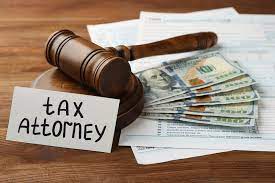A tax levy is an official legal act by the Internal Revenue Service under federal law, typically without going to trial, to seize real property to pay a tax liability. The levy “involves the power of seizure and distraint by any method”. A tax lien is issued by a U.S. Tax Court which “issues an order for the levy”. There are two types of tax liens: Regular Levy and Specific Levy. ” Levy on property”, refers to a lien or tax lien that imposes restrictions and limitations upon a party (e.g. a bank) for non-payment of tax.
 There is a district limitation on how large a tax levy can be in Tennessee, as dictated by Tennessee Tax Law. Also, the tax levied cannot exceed the amount of “exempt surplus” available to the taxing district. In addition, there is no limit on how many times a tax can be levied in either the state or county district.
There is a district limitation on how large a tax levy can be in Tennessee, as dictated by Tennessee Tax Law. Also, the tax levied cannot exceed the amount of “exempt surplus” available to the taxing district. In addition, there is no limit on how many times a tax can be levied in either the state or county district.
Tax Liens are most commonly collected by performing a random, individual examination of the taxable property. When a district performs an examination, only certain types of properties will trigger an examination. Those types of properties include real estate, cars, jewelry, houses, storage buildings, businesses, structures built solely for business purposes, structures with a single connection to the property (e.g. a garage), tents, and mobile homes. If these categories of properties are inspected, one will be subject to a tax levy. Click here to learn more about taxes ad the role of tax attorneys.
A separate act also called a property tax cap law exists in Tennessee. This law limits how much tax a home owner can be levied for any one property within the counties in Tennessee. In some counties the limits are imposed at the school district level while in other counties they are imposed at the property tax cap law level. The property tax cap law differs from the income tax cap law in that the latter allows tax levies to exceed income tax caps, but not exceeding 25% of a home’s value.
How do tax levies affect the owners’ financial situation? In the most extreme cases, tax levies can mean complete liquidation of all assets, including those owned by the taxpayer. This can result in the domino effect of wiping out one’s retirement pension and other future financial security. While this is a very drastic solution, it is also the solution that most taxpayers accept. Wage garnishments and foreclosure of assets may also be incurred if the owner does not comply with the terms of the tax levy. In addition, a tax levy can adversely affect one’s credit rating and ability to get loans in the future.
If a home owner’s tax levy limit is exceeded, there are two legal means to challenge the overage. The first is to ask for an exception based on exceptional circumstances. Every year the IRS administers a survey that lists the qualifications needed to qualify for each category of exemption. The Taxpayer Advocate Service is responsible for advising taxpayers on which exemption to claim, how to claim them, and how to avoid being denied a claim for exemption.
The second method used to challenge a tax levy is to file a state tax lien action in county court. Every state has a procedure for appealing a tax levy which must be filed within a specific time frame after the levy is issued. If the Tax Lien Notice is not honored, the state tax levy can be reclaimed through the same procedures available for recovering a federal tax lien. However, if the owner contests the state tax levy based upon the failure to pay the tax bill, then the burden of proof that the tax bill was paid is shifted to the Internal Revenue Service.
If a taxpayer is unable to pay the bill, the Internal Revenue Service will seize the tax lien and sell it to recover the debt. If the Internal Revenue Service cannot recover the full amount of the levy debt, the district attorney will place a lien against the property. This causes a second, third, or fourth tax levy against the same property. The fourth tax levy may be used to recover more funds than the other previous levies, but only if the district attorney issues a final order for collection. In some states, counties are automatically included in the state tax levy process. In such states, when a levy is placed against a home, the homeowner is typically notified 30 days before a second county tax levy may be placed if the homeowner does not pay the bill.